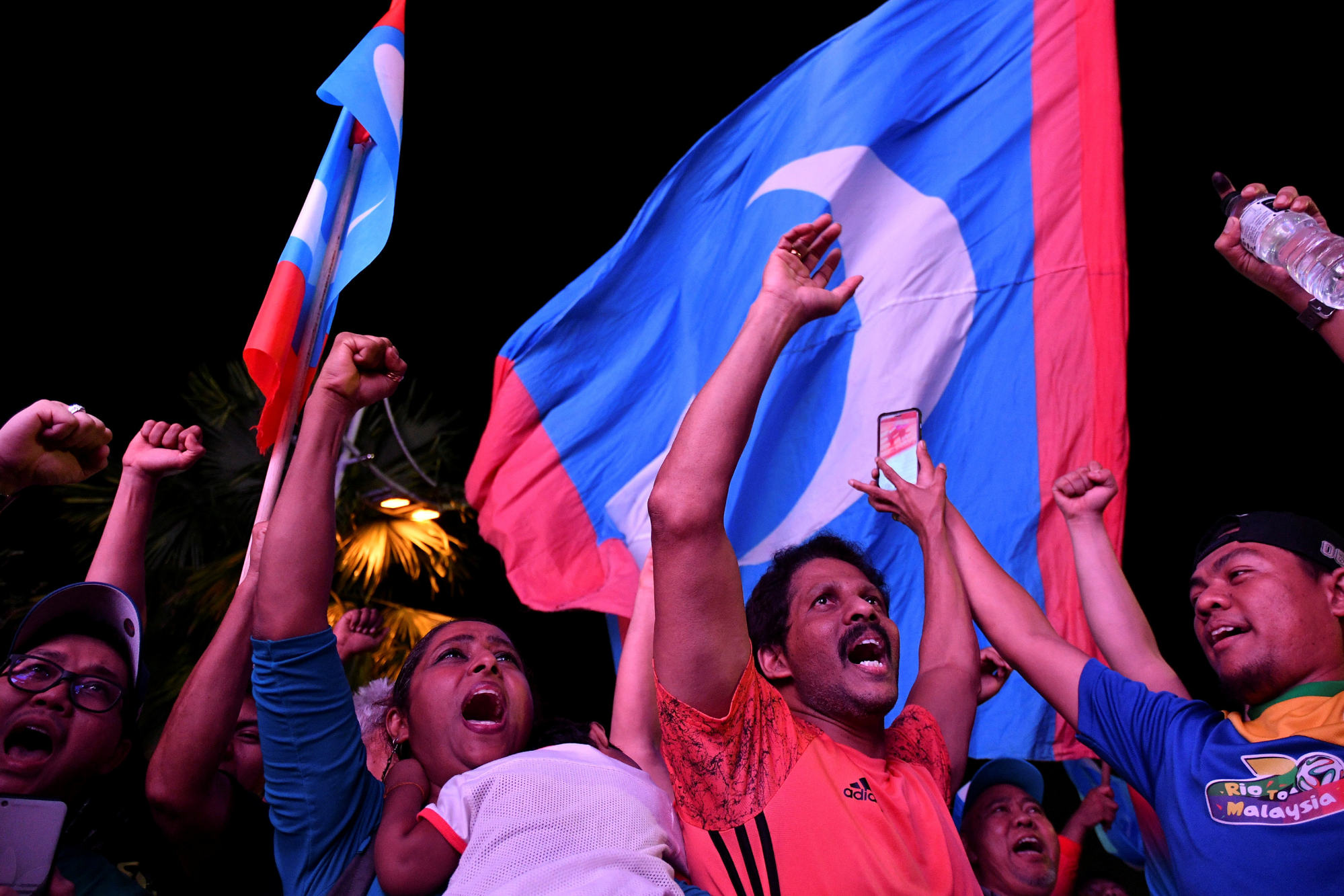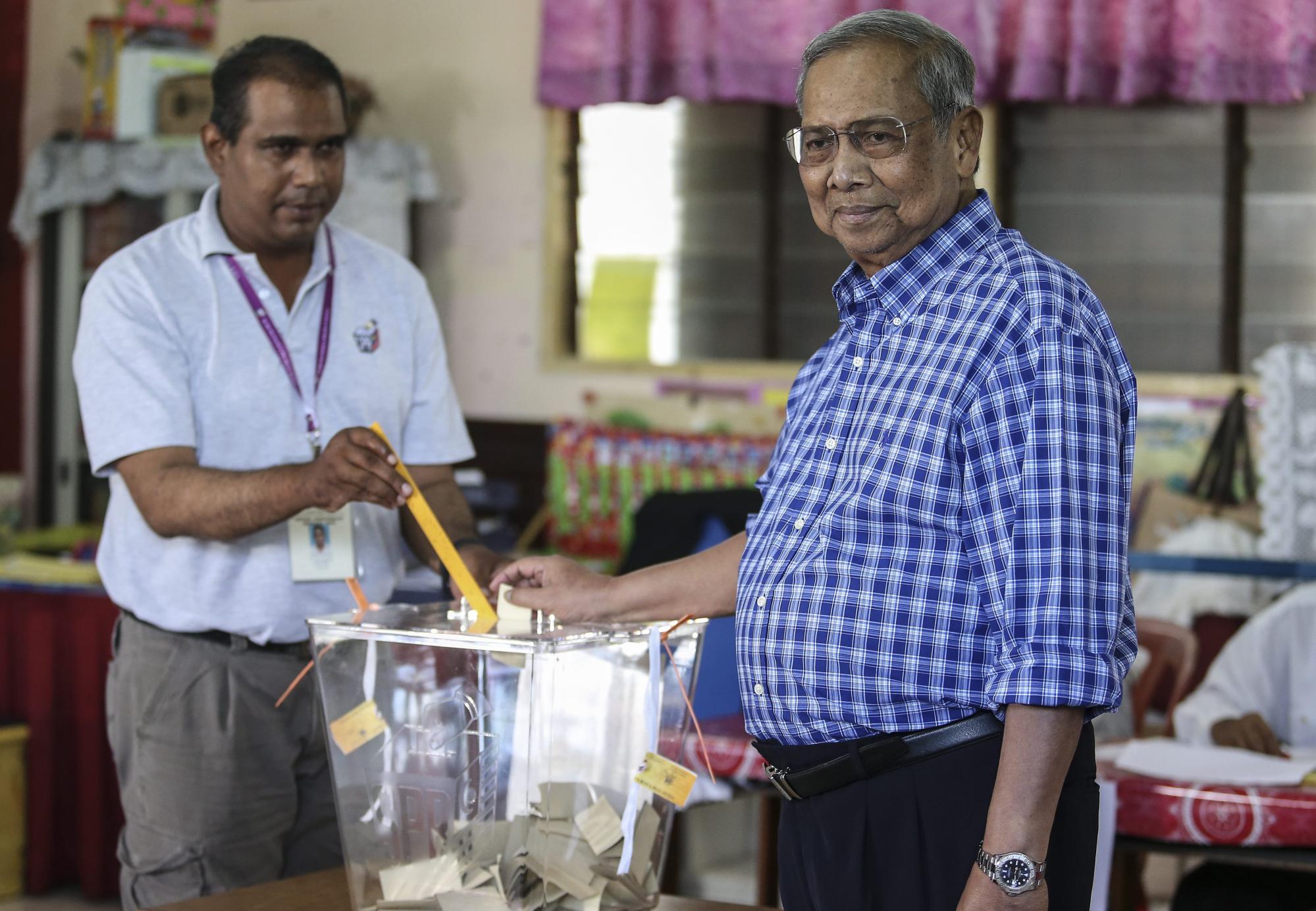
Malaysia election: ethnic Chinese voters long for return of multiracial politics under Pakatan Harapan
- Malaysian-Chinese have long felt dissatisfaction with pervasive racial policies and politics that place a premium on the Malay majority’s interests
- A new survey shows many now want multicultural Pakatan Harapan back in power, with Anwar Ibrahim their preferred choice of PM – by a wide margin
Four out of five ethnic Chinese respondents to a survey published last month said they would, or are very likely to, vote in the coming national polls. Just 11 per cent of those answering the survey, which targeted voters in key Chinese-majority constituencies and was funded by the Huayan Policy Institute and the Centre for Malaysian Chinese Studies, said they were undecided about whether to vote or not.

The survey’s findings are a reflection of underlying sentiments that persist among Malaysia’s ethnic Chinese, who have long felt dissatisfaction with pervasive racial policies and politics that place a premium on the interests of the Malay majority over other citizens, according to James Chai, a visiting fellow at the ISEAS-Yusof Ishak Institute.
“Most Chinese continue to prefer the Pakatan Harapan coalition primarily because of the multiracial promise,” Chai said.
The Chinese vote was a key driver behind the watershed 2018 election result, which led to the country’s first-ever change of government in more than six decades. Voters, angered by rising living costs and allegations of rampant corruption by ruling party leaders, booted out the Umno party and the Barisan Nasional coalition that it leads.
Malaysia’s Pakatan Harapan failed to deliver. Here’s what it needs to do in opposition
The term communist is regularly used by right-wing Malay nationalists as a derogatory term for Malaysia’s ethnic Chinese, who have been pegged as sympathisers of the long-defunct Malayan Communist Party that waged a bloody campaign against the British colonial administration after World War II.
Rampant ‘divide-and-rule’ identity politics
Malaysia’s ethnic Chinese community is also its largest minority group, accounting for about one-fifth of the 32.7 million population. Most are descendants of Chinese migrant workers that formed the backbone of a 19th century tin-mining boom.
But their history, and subsequent rise as the nation’s wealthy merchant class, have long led to accusations from Malay nationalist parties and groups that ethnic Chinese are trying to take over the country – despite Malays making up well over 60 per cent of the population and being firmly in control of the nation’s politics and government.
Malay nationalist leaders regularly use pejoratives such as pendatang (immigrant) when talking about ethnic Chinese, or chant the phrase balik tongsan (go back to China) when they want to whip up political fervour among the Malay electorate.
Minorities want to be treated equally as Malaysians, nothing more
There exists a deep well of suspicion to draw upon. Tensions between Malays and ethnic Chinese peaked with the tumultuous post-election race riots of 1969, which resulted in deadly clashes that left scars on Malaysian society which have yet to heal.
Much of this fearmongering is the result of rampant “divide-and-rule” identity politics, according to local musician and filmmaker Pete Teo, who is ethnic Chinese himself.
“[It’s] the most toxic problem we inherited as a country. Minorities want to be treated equally as Malaysians, nothing more,” he said.
Racial politics: where it all went wrong for the Malaysian Chinese Association?
Denielle Leong, a fellow Malaysian of Chinese heritage, echoed Teo’s view on Twitter, calling for “equal opportunities” and “people who are actually capable to lead the nation”.
“All the cronyism and nepotism hanky-panky and race-based politics are holding us back,” she said.
Umno and the Barisan Nasional coalition it leads began losing the support of Malaysia’s ethnic Chinese community around 2008, when it was denied a parliamentary supermajority in that year’s election for the first time since 1969.
Umno was incensed by the 2013 poll result, as evidenced by the front page headline on a party-owned newspaper in the election’s wake, asking: “What more do the Chinese want?”
What do Malaysian-Chinese voters want?
Education is a hot-button issue for many of Malaysia’s ethnic Chinese – in particular, the government’s lack of recognition of the Unified Examination Certificate (UEC), a standardised test used by the country’s independent Chinese high schools.
The federal authorities have traditionally seen the test as antithetical to Malaysia’s nation-building agenda, because it follows a syllabus set by mainland China and Taiwan.
But embracing the UEC has proved to be a vote winner in the past, with then-chief minister of the semi-autonomous sate of Sarawak, Adenan Satem, inspiring support among Chinese voters by labelling the federal policy “stupid”.
“If there is no recognition here, then UEC graduates will go overseas to study and stay back and work there, causing a brain drain here,” he said.

He made those remarks ahead of the 2016 Sarawak state election, at which Adenan’s party won 16 more seats than it previously held – including eight that had a majority of ethnic Chinese.
Seeking to emulate this earlier success, Pakatan Harapan has made recognising the UEC part of its election manifesto – renewing a pledge that it had in place previously, but retracted after it met with opposition from conservative voters.
“The multiculturalism we have in this coalition, which our rivals want to racialise, will not deter our fight for the people.”
The Chinese cannot stand corruption, and they want to be treated more fairly
Despite being a renowned Islamist, Anwar is still many Chinese voters’ favourite for the premiership, according to last month’s survey, with some 20 per cent of respondents naming him as their preferred candidate – putting him ahead of the incumbent by a wide margin.
“Among the declared prime ministerial candidates, they [ethnic Chinese voters] look at Anwar as one who would be most fair towards the minority community in Malaysia,” said political analyst James Chin, a professor of Asian studies at the University of Tasmania in Australia.
“The Chinese cannot stand corruption, and they want to be treated more fairly,” Chin said.
With Najib behind bars, is Malaysia’s corruption fight finally winnable?
Choo Wei Lynn, an ethnic Chinese Malaysian who now lives in Singapore, told This Week in Asia that she just hoped “whichever” was the least corrupt party wins this month’s election.
“I hope Malaysia will get more progressive so we can all come home,” she said of the Malaysian-Chinese like herself who have chosen to live elsewhere.

